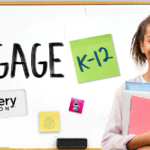By Pedro A. Rivera | Originally published in the Back-to-School 2019 issue of AC&E.
When Governor Tom Wolf outlined his vision for equity in Pennsylvania’s Equity and Inclusion Toolkit in 2017, he echoed our state’s founder William Penn’s ideals of tolerance and the value of diversity. Those same principles provide the foundation for the Department of Education’s approach to promoting educational equity across the commonwealth.
Pennsylvania is a diverse state of over 12.5 million residents, living in rural, urban and suburban communities. From farmland to former steel towns, each day our schools – from pre-k to postsecondary – are serving students with a range of academic, social, and emotional needs.
As the state education agency in a local control state, we’ve approached our work on equity and inclusion on several levels and have been intentional in engaging a variety of stakeholders whenever possible – from policy makers to educators to families. To demonstrate the breadth of our work across the state, I’ll highlight a few of our initiatives that could be modified and introduced in other states, districts, or classrooms.
Creating an Interdisciplinary Workgroup
Our education system, and ultimately students, benefit when communities collaborate to support schools; especially when those entities represent a diversity of experience, training, and perspective.
With the goal of helping our schools create and maintain settings that celebrate and value diversity and inclusion, PDE convened a group of stakeholders to inform our work in developing resources for our state’s local education agencies.
The interdisciplinary workgroup – including representatives from schools, community groups, educational organizations, and others – meets regularly using face-to-face convenings and online webinars. During these meetings, participants learn from equity experts, hear from school leaders about the challenges impacting rural, urban, and suburban school communities, brainstorm and formulate guidance for advancing equity, and engage in professional development. The team has examined equity from a variety of lenses including equity in data collection, discipline, and access. They’ve also taken a broader approach to equity, considering how it aligns to a continuous cycle of improvement.
In its initial year, using Pennsylvania’s intermediate unit regional construct, the group helped create and facilitate a professional development opportunity for educators across the state to share strategies for expanding equity practices in the classroom.
Based on resoundingly positive feedback from educators and administrators who have participated in training, the interdisciplinary group has decided to design a virtual “equitable practices toolkit” consolidating a variety of resources into one product, with the goal of making the toolkit available to all Pennsylvania’s 700+ LEAs in summer 2020.
Engaging Families
As educators we know family involvement is critical to overall student success – after all, students spend most of their time and do most of their learning out-of-school. Family engagement doesn’t just promote academic success but improves overall student wellbeing and strengthens communities. However, the traditional methods of family involvement – like parent nights and parent/teacher conferences – have become outdated and insufficient for many of our communities. So, how can educators partner with caregivers and communities toward promoting student achievement and wellness?
To help address this issue, Pennsylvania formed a Family Engagement Coalition. The Coalition is aligned to Pennsylvania’s participation in the first national cohort of the Council of Chief State School Officers’ (CCSSO) work on family engagement, and is comprised of representatives of early learning programs, school districts, statewide advisory councils like the Special Education Advisory Council and the Statewide Parent Advisory Council, and community organizations like the United Way and the Pennsylvania Partnership for Children. One of the group’s chief objectives was to create Pennsylvania’s Birth through College, Career, Community Ready Family Engagement Framework, which is set to be released for the 2019-2020 school year.
The framework outlines the commonwealth’s vision, goals, and strategies to support family engagement initiatives at the state and local levels. It also provides strategies for real world application by Pennsylvania educators.
Pennsylvania’s family engagement work aligns to our emphasis on the community school model, which has been introduced in schools around the state – in rural and urban communities.
The Department of Education also works across sectors by partnering with other state agencies, including the departments of Human Services, Corrections, and Labor and Industry to design and implement strategies for community involvement, especially for underrepresented students.
Establishing a Superintendent’s Academy
Research suggests that teacher and school leader quality can play an important role in student outcomes. To improve educator preparedness and retention, over the past several years Pennsylvania has redesigned its SAS Portal – a researched-based online resource teachers can use to enrich classroom instruction, as well as launching new programs aimed at strengthening and investing in Pennsylvania’s teacher pipeline.
Among the most innovative and well received equity initiatives has been our Superintendent’s Academy. The Academy is an intensive, two-year professional development program, geared toward district leaders serving in high poverty areas – urban and rural. Through a partnership with the National Institute for School Leadership, Pennsylvania has graduated more than 70 superintendents and charter school leaders to date and will welcome its fourth cohort later this year.
Throughout the two years, superintendents attend a series of in-person sessions to explore the ways poverty influences academic, social, and emotional development of students and on the work of teachers and administrators in high-poverty schools. Superintendents hear from experts and engage in reading and research of educational theory. Often participants share that among the most valuable aspects of the program is learning alongside their peers, who have often encountered similar challenges and allow them to work through potential solutions together.
The Academy also has a focus on real world application. During the program, participants craft Action Learning Projects (ALP), where they can apply concepts covered throughout the course to address a major issue impacting their district. ALPs provide a vehicle for promoting deep inquiry in educational theory (research, analysis, synthesis and reflection) as well as a key lever for piloting potential solutions with peers and facilitators in an ongoing collaborative environment.
In Pennsylvania, we know there’s no one-size-fits-all approach to improving education and student achievement. Ensuring every learner has access to the resources they need at the time they need them is essential to achieving educational equity and can help students advance. Pennsylvania’s investments in these programs, coupled with our attention to college, career, and community readiness will ensure the commonwealth’s students are bettered prepared for success when they graduate.
Pedro A. Rivera was appointed as the Pennsylvania Secretary of Education by Governor Tom Wolf and confirmed unanimously by the state Senate in 2015. Currently, Rivera also serves as the President of the Board of Directors for the Council of Chief State School Officers (CCSSO), a nonpartisan organization of public officials who head state departments of elementary and secondary education. As President, he focuses on promoting equity in education and elevating the ways states can improve the conditions for learning to ensure all students have access to the supports they need to be successful inside the classroom. Rivera brings extensive experience in public education to his leadership roles. Prior to his appointment to Governor Wolf’s Cabinet, he served as superintendent of the School District of Lancaster. Additionally, he was a classroom teacher, assistant principal, principal, and executive director for the School District of Philadelphia, as well as a staff member with the Philadelphia Federation of Teachers.
The American Consortium for Equity in Education, publisher of the "Equity & Access" journal, celebrates and connects the educators, associations, community partners and industry leaders who are working to solve problems and create a more equitable environment for historically underserved pre K-12 students throughout the United States.
- American Consortium for Equity in Educationhttps://ace-ed.org/author/admin/
- American Consortium for Equity in Educationhttps://ace-ed.org/author/admin/April 23, 2025
- American Consortium for Equity in Educationhttps://ace-ed.org/author/admin/
- American Consortium for Equity in Educationhttps://ace-ed.org/author/admin/







